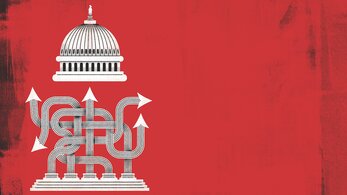When writing the first draft of a Cato Institute Statement of Principles that was suggested by director David Humphreys and adopted by our board in October 2023, I included a quote from Douglass that I love. In a lecture to the Rochester Ladies’ Anti-Slavery Society in 1855, he said, “I would unite with anybody to do right, and with nobody to do wrong.”
This quote was incorporated into the Statement because its spirit infuses almost all of our work at Cato. Mapping our principles to political philosophies and policy debates illuminates that Cato will have broad areas of agreement and areas of serious disagreement with virtually anyone, regardless of where they fall on the political spectrum.
Whether it’s Democrats or Republicans on Capitol Hill or in state houses around the country, staffers from both sides of the aisle joining our Congressional Fellowship Program, administrations of either political party, or the thousands of educators of Project Sphere (easily the most diverse part of our community), we share common ground and objectives. And we work together to advance those objectives—whether it’s through policy change, efforts to repair our civic culture, or the promotion of universal values such as freedom of expression, freedom of conscience, the Constitution, and the rule of law.
This was much on our minds as Election Day approached, bringing with it what George Will credibly called “the worst presidential choice in US history.” And whichever candidate you preferred (or, perhaps, least disliked), it was easy to rue either potential outcome—if for different reasons. But this much was certain: Cato, our policy experts, and our outreach professionals stood ready to work pursuing policy change with either administration—if in vastly different areas.






